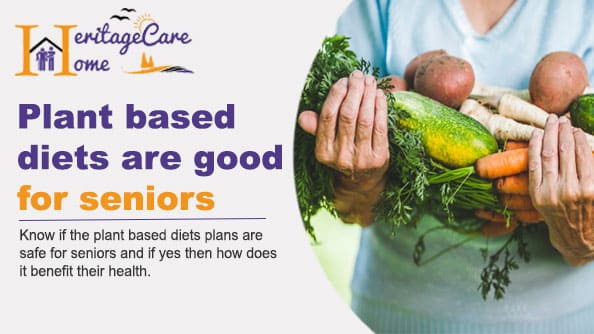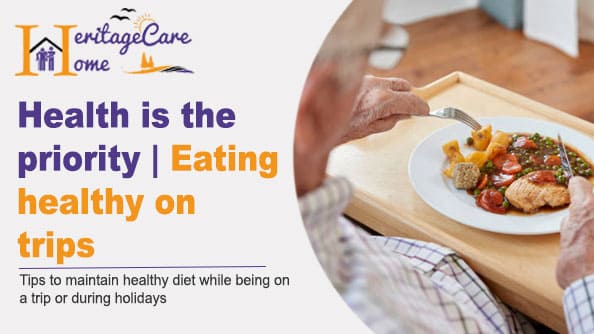Health is the priority | healthy on trips
- Admin |
- Feb 08, 2024
Tips to maintain healthy diet while being on a trip or during holidays...
Read more
Younger generations are increasingly embracing plant-based diets. Many elderly people probably have kids or grandkids who eat vegetarianism or veganism. Their motivations may include fears about their health or objections to animal abuse.


Younger generations are increasingly embracing plant-based diets. Many elderly people probably have kids or grandkids who eat vegetarianism or veganism. Their motivations may include fears about their health or objections to animal abuse.
Some senior citizens are starting to look into alternate diets on their own. A rising number of doctors, particularly cardiologists, advise seniors to adopt a lifestyle based on the DASH diet or the Mediterranean diet. Other senior citizens are also converting to a plant-based diet.
Enhancing telomere activity: Telomeres are the enzymes that help our DNA strands' caps regenerate. Despite being crucial for human life, they get shorter as we get older. According to research from the University of California, San Francisco, following a plant-based diet for three months can greatly boost telomere synthesis and decrease aging.
Increases immunological function: You could consume fewer fruits and vegetables if your diet contains animal products. You are more likely to develop heart disease as a result of this combination, and you are also less likely to benefit from the health benefits that fruits and vegetables may offer. Plant-based diets are most frequently associated with a lower risk of cancer, a stronger immune system, a healthier weight, greater energy, and better sleep.
There are a few things to consider if you decide to go to a plant-based diet in your later years.
To develop and retain muscular mass, the body needs protein. In our 30s, this might start to drop. Replace meat and dairy in your diet with other plant-based foods that are high in protein. Seeds, nuts, and legumes are just a few examples.
As people age, their bodies are less able to absorb vitamin B12 than they were when they were younger. A deficit may result from switching to a plant-based diet because this vitamin is only present in animal products. Ask your doctor whether an injectable or supplement of vitamin B12 is advised.
As people get older, osteoporosis becomes more prevalent. Although it is a major contributor to fractures and broken bones, calcium helps to prevent it. You'll need to include calcium-rich plant-based meals if you cut out dairy from your diet. These include green vegetables, including spinach, kale, turnips, collard greens, and broccoli.
You might find it helpful to make the transition to a new way of eating by reading The Beginner's Guide to Starting a Plant-Based Diet. It addresses a range of subjects, such as how to create substitutes so you can continue to enjoy your favorite dishes.
We at Heritage Care Home Senior Living Communities are aware of the significance of a good diet for healthy aging. In our dining program, wholesome nutrition and delicious food are balanced. To schedule a time for a private tour and lunch in the dining room, contact the Heritage Care Home facility that is closest to you!

Tips to maintain healthy diet while being on a trip or during holidays...
Read more
The majority of Americans eagerly look forward to retirement. Many people have distinct memories of traveling, exploring the nation...
Read more
Understand how to convince your parents to accept help at their old age...
Read more
Seniors are using the internet to order anything from groceries to post office stamps as long as the COVID-19 crisis concerns remain present...
Read moreFEEL THE PLEASURE OF BEING CAREFREE